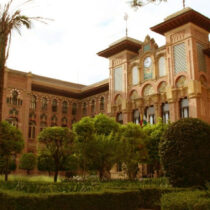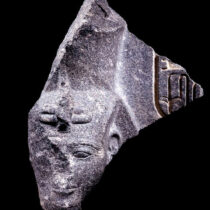A survey of Greek historic films from the years when they made a first appearance (Balkan Wars) in the form of new releases until the 1970s (Th. Angelopoulos and “militant” documentaries) leads to the conclusion that such films were strongly affected by the general political climate of the country.
This kind of film was not especially successful before 1974, in the so-called “old”, commercial cinema, due to the lack of freedom in ideological expression. Thus, the folk and anniversary-like approach to and treatment of historic subjects [see, “foustanella” (= an evzone’s petticoat) or war epopoeiae with melodramatic exaggeration] became the political instrument, which was used to prevent any deviation from the official and showed the prevailing authority’s interpretation of the historic past. Adding the lack of technical prerequisites of Greek film-making to this major motive, we can easily explain the reasons of the disappointing quality of the Greek historic film of that period. The intense political climate prevalent in the years following the overthrow of junta directly affected, as it was natural to happen, the historic film and resulted to a “counter attack”, occasionally out of bounds, of the politically militant film makers. In the 1980s the political-historic film gradually loses ground and is succeeded by more anthropocentric films which approach history in a less schematic or dogmatic way. The relation Greek cinema has with ancient literature has not been especially fruitful. Apart from the three pre-World-War II atttempts to make films with an ancient Greek tragic and pastoral repertory (two “Prometheus Bound” in the late 1920s by Gaziadis Brothers and D. Meravidis, respectively, films which were based on the staging of the play by Sikelianos during the Delfi Festival and “Daphnis and Chloe” in 1931 by Orestes Laskos on Loggos’ script) no others can be mentioned on similar subjects. Only in 1961 G. Tzavellas shoots a film on Sophocles’ “Antigone”, while two films on “Electra” – the one based on Sophocles’ and the other on Euripides’ play – follow, directed by Ted Zarpas (a mere filming of the National Theater’s performance in Epidaurus) and M. Kakoghiannis, respectively.
There after, antiquity will be represented in the movies either by “historic” anniversary films and adaptations of tragic plays during the years of the military dictatorship (e.g., “Hippocrates and Democracy”) or by experimental films inspired by the ancient Greek world [e.g., “Prometheus se Theftero Prosopo» (= Prometheus in Second Person) in 1974 by K. Ferris, “Diadikasia” (= Procedure) in 1975 by D. Theos. In 1977 M. Kakoghiannis returns to the sphere of ancient tragedy directing “lphigeneia in Aulis”.

